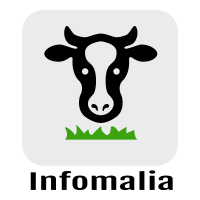
“The food that was most closely correlated with the mortality rate of prostatic cancer was milk.”
“Among the food items we examined, cheese was most closely correlated with the incidence of testicular cancer at ages 20-39, followed by animal fats and milk.”
“The results of our study suggest a role of milk and dairy products in the development and growth of testicular and prostatic cancers. The close correlation between cheese and testicular cancer and between milk and prostatic cancer suggests that further mechanistic studies should be undertaken concerning the development of male genital organ cancers.”
https://pubmed.ncbi.nlm.nih.gov/11857417/
Milk Consumption Is a Risk Factor for Prostate Cancer
‘Positive association between milk consumption and prostate cancer:”
https://www.ncbi.nlm.nih.gov/pubmed/15203374
Dairy products, calcium, and prostate cancer risk in the Physicians’ Health Study:
https://www.ncbi.nlm.nih.gov/pubmed/11566656
“Our findings provide indirect evidence for a protective influence of
high 1,25(OH)2D levels on prostate cancer and support increased fruit
consumption and avoidance of high calcium intake to reduce the risk of
advanced prostate cancer.”:
https://www.ncbi.nlm.nih.gov/pubmed/9458087
“The milk protein, casein, promotes the proliferation of prostate cancer cells such as PC3 and LNCaP”:
https://www.ncbi.nlm.nih.gov/pubmed/25237656
Milk intake in early life and risk of advanced prostate cancer:
https://www.ncbi.nlm.nih.gov/pubmed/22190107
Full text: http://www.ncbi.nlm.nih.gov/pmc/articles/PMC3249408/pdf/kwr289.pdf
The experience of Japan as a clue to the etiology of testicular and prostatic cancers:
http://www.ncbi.nlm.nih.gov/pubmed/12710911
“Higher amounts of plant-based foods may be associated with decreased PCa risk, and consumption of higher amounts of dairy products may be associated with increased PCa risk. ”
https://www.ncbi.nlm.nih.gov/pubmed/31633743
” Circulating IGF-1 concentrations have been associated with higher cancer risk, particularly prostate, breast and colorectal cancer. Our findings are in line with most previous investigations and support the hypothesis that dairy and milk intake are associated with higher IGF-1 concentrations. “
